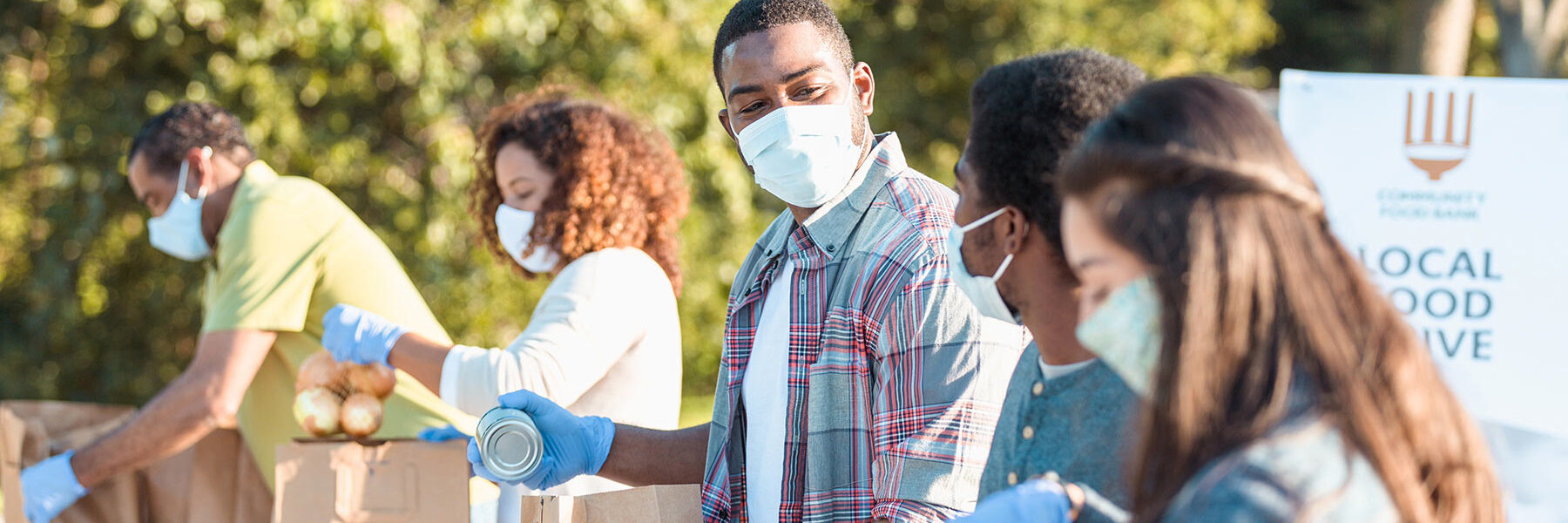The COVID-19 pandemic has unquestionably upended the rhythms and routines of our personal and professional lives. The economy has been disrupted, and the uncertainty of that directly impacts philanthropy. Making commitments of any kind has become difficult. Short-term planning has been a necessity and looking too far into the future seems ill-advised until life returns to something resembling more normalcy.
Of course, there are many who have weathered and persevered through times of challenge and disruption before. 9/11. The Great Recession. The dot-com crash. The Bernie Madoff embezzlement scandal. All of these tested us, our missions, and our resolve. As we’ve experienced before, times like these sharpen our thinking, focus our actions, and even lead to sparks in creativity and an embrace of new opportunities.
In this time of disruption, social distancing, and economic fluctuation, nonprofits must be laser focused on their case for support, whether that case is a set of annual fund talking points, a preliminary prospectus for an emerging project, or a fully conceived campaign document that’s being shared with donors. Wherever you fall on that spectrum, BWF has some guidance to share as you reflect on your particular case and what seeking support during this pandemic means for your organization.
First and foremost, keep moving forward.
Great organizations have always been essential to society, and many are more critical now. Do not allow the environment of uncertainty to cause you to retreat from telling your story and making your case, but do consider ways the disruption can act as a stimulus for innovation and new ideas. Rather than be stymied or paralyzed, seize the moment as a catalyst. Fundraising has persisted through and after all prior events of this nature. Be sensitive and thoughtful in how you communicate while continuing to reach out to donors and prospective donors at all giving levels.
Lead with COVID-19 and pandemic-related efforts.
Immediately tell the story of how your work is helping with issues related to the coronavirus and how your organization is being impacted. For instance, hospitals and academic medical centers are on the frontlines, tracking the virus, developing vaccines, and treating patients. Their case is stronger than ever before. Meanwhile, the nonprofit sector provides much of what is most valuable in social services, the arts and culture, recreation, and education. A variety of organizations are helping respond to the indirect effects of the virus, among them:
- Colleges and universities that are helping students displaced from housing, many of whom are housing-vulnerable and suffer from food scarcity when not living on campus. In some instances, these students hail from countries to which they cannot return at this time.
- Social service organizations that are helping feed K-12 students who relied on school food programs for one to two meals each day and are now out of school for an extended period of time. Or organizations that directly serve those with compromised immune systems and now find their resources and services stretched thin.
- Arts and cultural institutions that are using remote-delivery options to entertain and connect communities at a time of heightened stress and anxiety, all while facing immediate budget concerns due to the lost revenue of cancelled performances and events.
Virtually all organizations are being strained in some manner and magnitude. Share that story with your donors. Tell them how you are dealing with these circumstances and how they can help you continue your work during this challenging time.
Focus on your mission.
Remaining steadfast in living your mission is even more vital in times of great challenge and disruption. The best philanthropic agendas were already inextricably tied to the organization’s mission. This will be doubly important during and following the post-pandemic environment. To that end:
- Build your case around the impact your organization makes on the world.
- Share your story and needs not in terms of your organization itself but rather the manner in which you make life better, the people you impact, and the problems you help solve.
- Articulate specifically the role donors play in making those outcomes possible.
- If the disruption has shifted some priorities, explain that. Tell donors what’s emerged as more pressing and what is being tabled for now but is still important.
Do not back away from your current case for support.
During times of stress and uncertainty, it can be difficult to see through to a future period when normalcy will return. But it will. Enduring needs and types of giving will persist. Endowments will still be vital, in part to help organizations address future challenges like what we are facing now. And in some cases, the need for an endowment will have been made even more clear for those organizations whose reserves are being depleted. Capital and programmatic funding will be necessary for the spaces and technology that enable missions to be carried out.
Be thoughtful in your conversations with donors who may have an interest in helping with a more immediate need, but do not forsake the breadth and forward-looking nature of your case. If it was properly constructed and artfully articulated previously, it will remain relevant to a properly functioning society and will still have appeal to many donors.
Cautiously evaluate ongoing campaigns for potential adjustments to the case for support.
Despite how it might feel, we are still in the early days in this new environment, so it’s important not to move too quickly to change campaign priorities. As weeks turn into months and we acquire a larger body of evidence of what the pandemic impact will be, institutions can consider what, if any, changes might need to be made. Very likely, changes to case statements will be about additions related to the pandemic rather than wholesale elimination of major campaign priorities. Be extremely transparent and communicate frequently with campaign leadership. Actively involve campaign volunteers in conversations about all aspects of the campaign, especially discussions regarding the case for support.
Now is the time to convey confidence, perseverance, and resilience, even grit. It’s essential to stay the course, even if some course corrections may be warranted. Your mission still matters, perhaps even more than before. Your donors still care, and new donors may even become aware of the important work you do. Your needs remain, though they may have shifted around a bit. In this unprecedented time of disruption due to a pandemic, it is necessary to restate, or state anew, your case for support.




